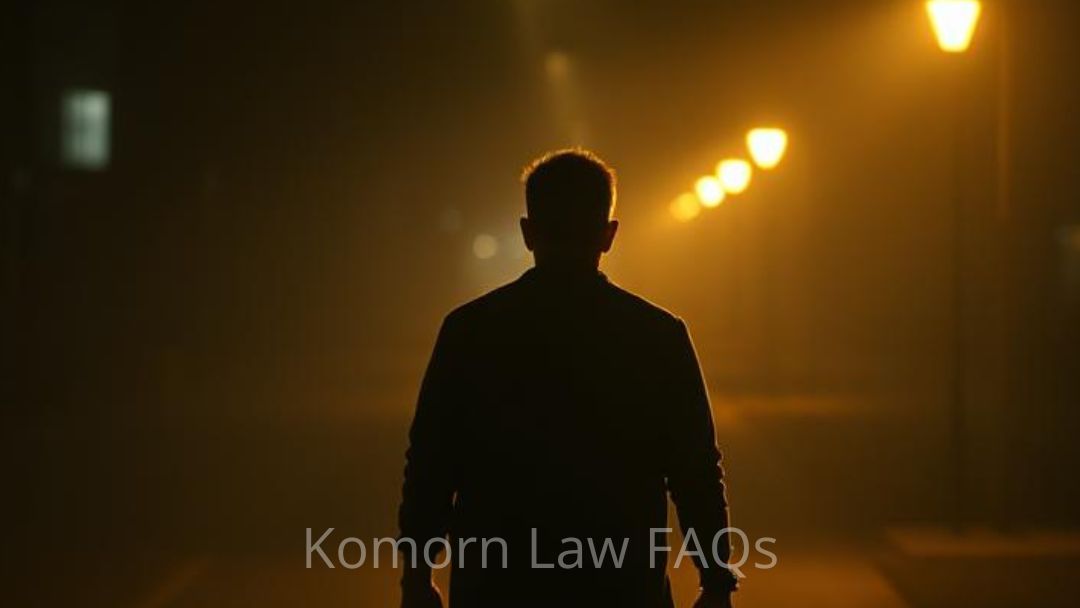Michigan Criminal Laws FAQs Drunk and DisorderlyAccording to Michigan State Law (Michigan Compiled Laws - MCL), there isn't a specific statute that solely defines "Public Drunkenness" as a statewide criminal offense in the same way some other states might have a...

Probable Cause v Reasonable Suspicion
What’s the difference between probable cause and reasonable suspicion?
Definition of Probable Cause
Probable cause refers to the belief held by a reasonable person that a crime is currently being committed, has already been committed, or is likely to be committed in the near future.
Legal Repercussions of Probable Cause – Probable cause serves as the necessary foundation for obtaining a search or arrest warrant and empowers a police officer to make an arrest if a crime is witnessed in progress.
Definition of Reasonable Suspicion
Reasonable suspicion has been defined by the United States Supreme Court as “the sort of common-sense conclusion about human behavior upon which practical people . . . are entitled to rely.”
Further, it has defined reasonable suspicion as requiring only something more than an “unarticulated hunch.” It requires facts or circumstances that give rise to more than a bare, imaginary, or purely conjectural suspicion.
Reasonable suspicion means that any reasonable person would suspect that a crime was in the process of being committed, had been committed or was going to be committed very soon.
Legal Repercussions of Reasonable Suspicion – When an officer has reasonable suspicion in a given situation, they are permitted to briefly detain or frisk the suspect.
However, reasonable suspicion alone does not authorize a full search of a person or their vehicle unless the individual is on school property.
It is important to note that reasonable suspicion does not provide sufficient grounds for an arrest or for obtaining a search warrant.
The Difference Between Probable Cause and Reasonable Suspicion
It is common for individuals to confuse the terms probable cause and reasonable suspicion, yet each has distinct implications that affect a person’s rights, the appropriate law enforcement procedures, and the overall outcome of an encounter with police.
Reasonable suspicion serves as a preliminary step prior to establishing probable cause; it indicates that there is a belief a crime may have occurred. This situation transitions into probable cause when the evidence suggests that a crime has most likely taken place.
Stop and Frisk
In Terry v. Ohio, 392 U.S. 1 (1968), the court recognized that a limited stop and frisk of an individual could be conducted without a warrant based on less than probable cause.
The stop must be based on a reasonable, individualized suspicion based on articulable facts, and the frisk is limited to a pat-down for weapons.
An anonymous tip that a person is carrying a gun is not, by itself, sufficient to justify a stop and frisk. Florida v. J.L., 529 U.S. 266 (2000).
Florida v. Bostick 501 U.S. 429, 437 (1991) – A person’s refusal to cooperate is not sufficient for reasonable suspicion.
Illinois v. Wardlow, 528 U.S. 119, 124-25 (2000). – A person’s flight in a high crime area after seeing police was sufficient for reasonable suspicion to stop and frisk.
The same requirement of founded suspicion for a “person” stop applies to stops of individual vehicles.
United States v. Arvizu, 534 U.S. 266 (2002). The scope of the “frisk” for weapons during a vehicle stop may include areas of the vehicle in which a weapon may be placed or hidden.
Michigan v. Long, 463 U.S. 1032 (1983). The police may order passengers and the driver out of or into the vehicle pending completion of the stop.
Maryland v. Wilson, 519 U.S. 408 (1997). The passengers may not be detained longer than it takes the driver to receive his citation. Once the driver is ready to leave, the passengers must be permitted to go as well.
During a stop for traffic violations, the officers need not independently have reasonable suspicion that criminal activity is afoot to justify frisking passengers, but they must have reason to believe the passengers are armed and dangerous. Arizona v. Johnson, 129 S Court. 781, 784 (2009).
Legal Counsel and Your Rights
When facing legal challenges, particularly in criminal cases, it is advisable to seek legal counsel immediately.
An experienced attorney can provide guidance on how to navigate interactions with law enforcement while safeguarding your constitutional rights.
Since 1993 our expert legal defense in navigating criminal law matters and protecting your constitutional rights are what we eat for breakfast everyday.
Contact Komorn Law PLLC if you’re ready to fight and win.
Research us and then call us.
Recent

Criminal Law FAQs – Drunk and Disorderly

Criminal Law FAQs – Drinking Alcohol or Smoking Marijuana and Driving
Michigan Criminal Laws FAQs Operating a Motor Vehicle Under The InfluenceWalking is cool... For fun and excercise. Not because you lost your license. Don't do the crime if you can't pay the price. But if you do get charged with a crime. Better Call Komorn to fight for...
Other Articles
Do Students Have 4th Amendment Rights in Schools
Students and 4th Amendment RightsStudents are entitled to a right to be safe from unreasonable searches and seizures even within school premises, as ruled by the Supreme Court of the United States. However, these rights are somewhat limited for students, allowing...
Forfeiture Law: SCOTUS and Sixth Circuit Issue Landmark Rulings
Forfeiture Law in Focus: SCOTUS and Sixth Circuit Issue Landmark RulingsThe landscape of forfeiture law has been significantly shaped by recent decisions from the U.S. Supreme Court and the Sixth Circuit Court of Appeals. These rulings, in the cases of United States v...
When Can Your Silence Be Used Against You in a Legal Situation?
US Supreme Court - Salinas v. TexasWhen Can Silence Be Used Against You? In the realm of criminal law, the Fifth Amendment to the United States Constitution grants individuals critical protections, including the right to remain silent and the right against...
Supreme Court 8-1 Gun Possession Decision Changes Second Amendment
Supreme Court 8-1 Gun Possession Decision Changes Second Amendment Landscape Forever!Issue: Whether 18 U.S.C. 922(g)(1), the federal statute that prohibits a person from possessing a firearm if he has been convicted of “a crime punishable by imprisonment for a term...






















